Filter by
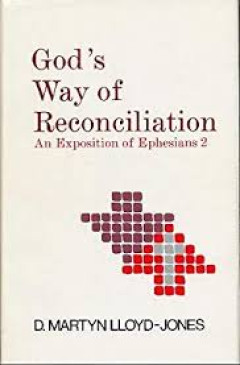
God's Way of Reconciliation: An Exposition of Ephesians 2
These masterful expositions on the second chapter of the Book of Ephesians reach the heart of the human problem--man's estrangement from God.
- Edition
- 1
- ISBN/ISSN
- 0801055199
- Collation
- Hardcover; 380 hlm.; 14.58 x 22.02 cm
- Series Title
- Martyn Lloyd-Jones on Ephesians
- Call Number
- 227.5
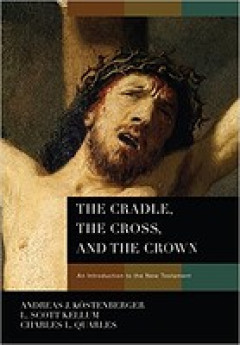
The Cradle, The Cross, and The Crown
- Edition
- -
- ISBN/ISSN
- 978-0-8054-4365-7
- Collation
- Hard cover, 954 hlm
- Series Title
- -
- Call Number
- 225
- Edition
- -
- ISBN/ISSN
- 978-0-8054-4365-7
- Collation
- Hard cover, 954 hlm
- Series Title
- -
- Call Number
- 225
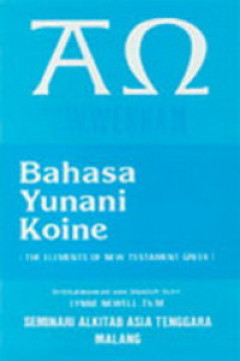
Bahasa Yunani Koine (The Elements Of New Testament Greek)
- Edition
- 2
- ISBN/ISSN
- -
- Collation
- Soft Cover, 77 hlm, 14,2x22,3cm
- Series Title
- -
- Call Number
- 485
- Edition
- 2
- ISBN/ISSN
- -
- Collation
- Soft Cover, 77 hlm, 14,2x22,3cm
- Series Title
- -
- Call Number
- 485
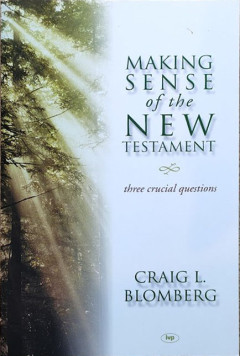
Making Sense of the New Testament: Three Crucial Questions
Is the New Testament historically reliable? Was Paul – rather than Jesus – the true founder of Christianity? How Should Christians apply the New Testament to life today, in cultures far removed in space and time from the first-century Mediterranean world? With exceptionally clear, original thinking, and thorough familiarity with the debates, Craig Blomberg offers carefully argued respo…
- Edition
- First British Edition
- ISBN/ISSN
- 9781844740345
- Collation
- 189 hlm. ; 22 cm
- Series Title
- -
- Call Number
- 225.1
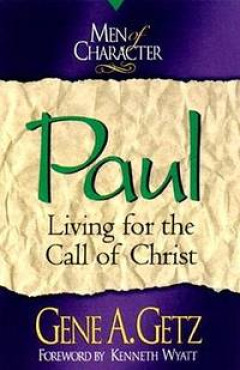
Men of Character: Paul: Living for the Call of Christ
How do the principles Paul taught and practiced apply to the lives of Christians today? The newest title in the popular Men of Character series examines the powerful life and ministry of the apostle Paul and reveals how his shining example illuminates our Christian walk today. From his sudden conversion on the road of Damascus through his many years of molding the early church, the stories of P…
- Edition
- -
- ISBN/ISSN
- 0805418180
- Collation
- Softcover; 235 hlm.; 15.3 x 22.8 cm
- Series Title
- Men of Character Series
- Call Number
- 225.92
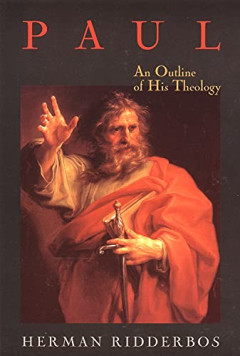
Paul: An Outline of His Theology
Now back in print in a beautiful new paperback edition, this study by one of Europe's foremost New Testament scholars provides a comprehensive exposition of the teaching of the apostle Paul. Firmly grounded in a careful exegesis of the biblical text and crafted with constant reference to the wealth of scholarly study of Paul's writings, this volume is a standard for interpreters of Paul's thoug…
- Edition
- -
- ISBN/ISSN
- 9780802844699
- Collation
- Softcover, 587 hlm, 15x23cm
- Series Title
- -
- Call Number
- 227.066

The World of the New Testament: Cultural, Social, and Historical Contexts
This volume addresses the most important issues related to the study of New Testament writings. Two respected senior scholars have brought together a team of distinguished specialists to introduce the Jewish, Hellenistic, and Roman backgrounds necessary for understanding the New Testament and the early church. Contributors include renowned scholars such as Lynn H. Cohick, David A. deSilva, Jame…
- Edition
- -
- ISBN/ISSN
- 9780801098611
- Collation
- Softcover, 616 hlm, 15x22cm
- Series Title
- -
- Call Number
- 225.95
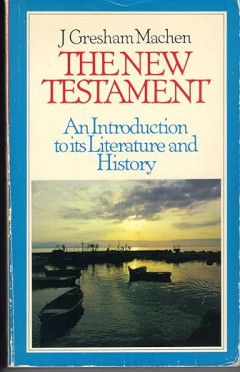
The New Testament: An Introduction to its Literature and History
- Edition
- 1
- ISBN/ISSN
- 9780851514499
- Collation
- Softcover; 387 hlm.; 13.89 x 21.62 cm
- Series Title
- -
- Call Number
- 225
- Edition
- 1
- ISBN/ISSN
- 9780851514499
- Collation
- Softcover; 387 hlm.; 13.89 x 21.62 cm
- Series Title
- -
- Call Number
- 225
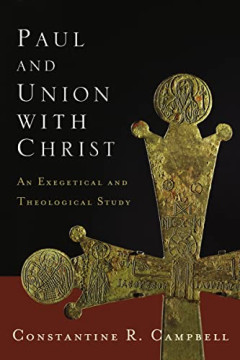
Paul and Union with Christ: An Exegetical and Theological Study
Winner of the Christianity Today 2014 Book Award in Biblical Studies, Paul and Union with Christ fills the gap for biblical scholars, theologians, and pastors pondering and debating the meaning of union with Christ. Following a selective survey of the scholarly work on union with Christ through the twentieth century to the present day, Greek scholar Constantine Campbell carefully examines every…
- Edition
- -
- ISBN/ISSN
- 9780310329053
- Collation
- Softcover, 479 hlm, 15x22cm
- Series Title
- -
- Call Number
- 227.06
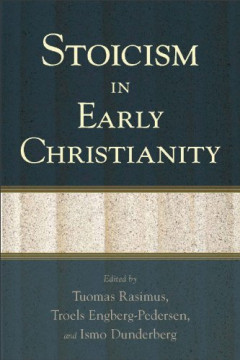
Stoicism in Early Christianity
How usefully do distinctly Stoic ideas illuminate the meaning of first and second century texts? This book suggests that early Christians—the authors of New Testament and noncanonical writings, including some early apologies—were often more influenced by Stoicism than by Middle Platonism. This insight sheds an entirely new light on the relationship between philosophy and religion at the bir…
- Edition
- -
- ISBN/ISSN
- 9780801039515
- Collation
- Softcover; 314 hlm.; 14.99 x 22.61 cm
- Series Title
- -
- Call Number
- 261.2
 Computer Science, Information & General Works
Computer Science, Information & General Works  Philosophy & Psychology
Philosophy & Psychology  Religion
Religion  Social Sciences
Social Sciences  Language
Language  Pure Science
Pure Science  Applied Sciences
Applied Sciences  Art & Recreation
Art & Recreation  Literature
Literature  History & Geography
History & Geography